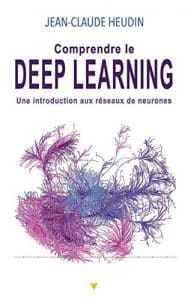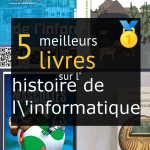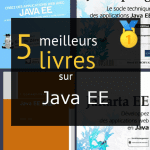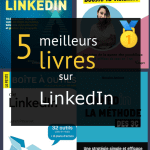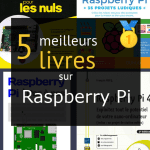Vous cherchez un livre sur le deep learning mais vous n’avez pas encore décidé lequel acheter?
Pour cette raison Les Livres a élaboré pour toi une liste des livres à lire absolument achetables online.
[acf field=”intro”]
Sommaire
- 1 🏆 Meilleurs livres sur le deep learning 2026: comparatif et avis
- 1.1 Deep Learning
- 1.2 Python sans détour: de l’addition au deep learning
- 1.3 Deep Learning: Unlocking Our Emotions
- 1.4 Python pour la Finance et le Trading algorithmique (2ème édition): Machine Learning, Deep Learning, analyse de séries temporelles, gestion des risques ... application en live trading sur MetaTrader™ 5
- 1.5 Deep Reading, Deep Learning
- 2 🥇Meilleuer livre sur le deep learning: l’incontournable
🏆 Meilleurs livres sur le deep learning 2026: comparatif et avis
Deep Learning
- Kelleher, John D. (Auteur)
L'argomento principale del libro "Deep Learning di Deep Learning" di John D. Kelleher è l'introduzione e l'applicazione del deep learning. Il libro offre una panoramica dettagliata della teoria e delle applicazioni pratiche del deep learning. L'autore spiega i principi fondamentali del deep learning, tra cui le reti neurali profonde, l'addestramento delle reti neurali, l'ottimizzazione dei parametri e l'uso di grandi quantità di dati per l'apprendimento automatico. Kelleher copre anche diversi settori di applicazione del deep learning, come il riconoscimento dei modelli, la classificazione delle immagini, la traduzione automatica, l'analisi del testo e il riconoscimento del parlato. Il libro offre esempi di codice e tutorial dettagliati su come implementare algoritmi di deep learning utilizzando librerie popolari come TensorFlow e Keras. Inoltre, il libro esplora anche le sfide e le questioni etiche legate all'uso del deep learning, come la privacy dei dati e la trasparenza degli algoritmi. Nel complesso, "Deep Learning di Deep Learning" di John D. Kelleher è una risorsa completa per chiunque sia interessato ad apprendere e applicare il deep learning.
Python sans détour: de l’addition au deep learning
- Berger, Laurent (Auteur)
Python sans détour: de l'addition au deep learning est un livre écrit par Laurent Berger. Ce livre a pour objectif de guider les lecteurs dans l'apprentissage du langage de programmation Python, en commençant par les bases telles que l'addition et en progressant vers des concepts plus avancés tels que le deep learning. Le deep learning est une branche de l'intelligence artificielle qui vise à créer des réseaux de neurones artificiels capables d'apprendre et de résoudre des problèmes complexes. Ce livre explique les principes et les techniques du deep learning et fournit des exemples de code Python pour aider les lecteurs à mettre en pratique leurs connaissances. En résumé, Python sans détour: de l'addition au deep learning est un guide pratique pour apprendre Python et découvrir le domaine du deep learning. Il convient aux débutants en programmation Python ainsi qu'aux personnes intéressées par les applications de l'intelligence artificielle.
Deep Learning: Unlocking Our Emotions
- Digital, Cervantes (Auteur)
Deep Learning: Unlocking Our Emotions by Digital, Cervantes is a book that explores the intersection between deep learning and human emotions. The authors delve into the potential of deep learning algorithms to understand and interpret human emotions, and how this can impact various fields such as psychology, marketing, and user experience design. The book begins with an introduction to deep learning, explaining the basic concepts and algorithms used in this field. It then moves on to discuss the importance of emotions in human communication and behavior, highlighting the challenges of accurately understanding and interpreting emotions. The authors then delve into the various applications of deep learning in emotion recognition and analysis. They discuss how deep learning algorithms can be trained on large datasets of facial expressions, vocal tones, and physiological signals to accurately recognize and classify different emotions. They also explore the potential of deep learning in generating emotionally intelligent responses in virtual agents and chatbots. Furthermore, the book explores the ethical considerations and potential risks associated with using deep learning in understanding emotions. It raises important questions about privacy, bias, and the potential manipulation of emotions through AI algorithms. Throughout the book, the authors provide examples and case studies to illustrate the practical applications of deep learning in understanding emotions. They also discuss the current state of research and highlight the future directions and challenges in this field. Overall, Deep Learning: Unlocking Our Emotions provides an in-depth exploration of the potential of deep learning algorithms in understanding and interpreting human emotions. It is a valuable resource for researchers, professionals, and anyone interested in the intersection of artificial intelligence and human emotions.
Python pour la Finance et le Trading algorithmique (2ème édition): Machine Learning, Deep Learning, analyse de séries temporelles, gestion des risques ... application en live trading sur MetaTrader™ 5
- Inglese, Lucas (Auteur)
La deuxième édition du livre "Python pour la Finance et le Trading algorithmique" de Lucas Inglese se concentre sur l'utilisation de Python dans le domaine de la finance et du trading. Le livre couvre plusieurs sujets avancés tels que le Machine Learning, le Deep Learning, l'analyse des séries temporelles et la gestion des risques. L'auteur commence par expliquer les bases de Python et comment l'utiliser pour analyser les données financières. Il passe ensuite à des sujets plus avancés, en présentant différentes techniques de Machine Learning et de Deep Learning utilisées dans la finance. L'auteur explique comment utiliser ces techniques pour prédire les mouvements du marché, détecter des modèles dans les données et générer des signaux de trading. Le livre offre également des conseils sur la gestion des risques, en expliquant comment calculer et gérer les risques associés aux transactions financières. L'auteur présente des outils avancés pour mesurer et réduire les risques, tels que la Value at Risk (VaR) et l'Expected Shortfall. Une partie importante du livre est consacrée à l'utilisation de Python dans le trading en temps réel sur la plateforme MetaTrader™ 5. L'auteur explique comment utiliser l'API de MetaTrader™ 5 pour connecter Python à la plateforme et envoyer des ordres de trading en temps réel. Il montre également comment analyser les données en temps réel et prendre des décisions de trading basées sur ces données. En résumé, "Python pour la Finance et le Trading algorithmique" est un livre avancé qui présente les techniques de Machine Learning et de Deep Learning utilisées dans la finance et le trading. Il offre également des conseils sur la gestion des risques et explique comment utiliser Python pour le trading en temps réel sur la plateforme MetaTrader™ 5.
Deep Reading, Deep Learning
- Sullivan (Auteur)
In "Deep Reading, Deep Learning," Sullivan explores the connection between reading deeply and learning deeply. He argues that deep reading, which involves critical thinking and analysis, is essential for deep learning and understanding complex topics. Sullivan explains how the act of deep reading allows readers to engage with texts in a meaningful way, making connections between ideas and concepts, and forming their own interpretations and insights. This kind of reading fosters a deeper understanding of the material and promotes critical thinking skills. Furthermore, Sullivan discusses how deep reading can enhance learning outcomes by helping students retain information better, make connections between different subjects, and develop a more nuanced understanding of complex topics. He emphasizes the importance of encouraging deep reading in educational settings to promote a deeper level of learning and comprehension. Overall, "Deep Reading, Deep Learning" highlights the powerful impact that deep reading can have on deep learning, and advocates for its integration into educational practices to enhance students' learning experiences.
🥇Meilleuer livre sur le deep learning: l’incontournable
Sélectionnez le meilleur livre sur le deep learning peut être plus compliqué que vous croyez. Cela dit, basé sur avis des lecteurs, Deep Learning au prix de 15,42 EUR est le meilleur livre disponible sur Amazon :

J’ai transformé ma passion pour les livres en un site Web, dans l’espoir d’aider les gens à trouver les meilleures lectures.

